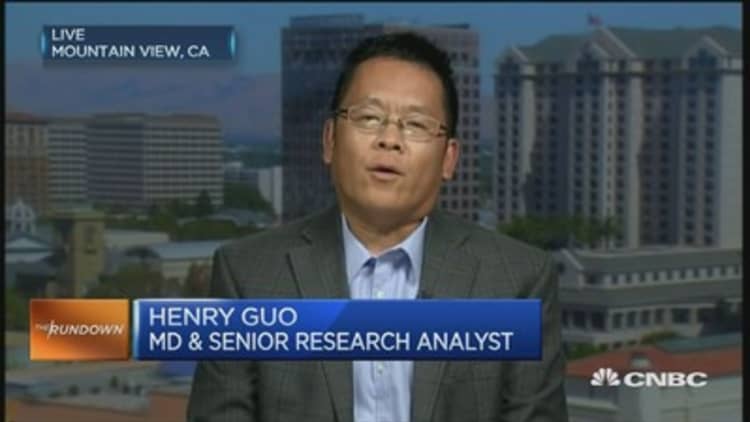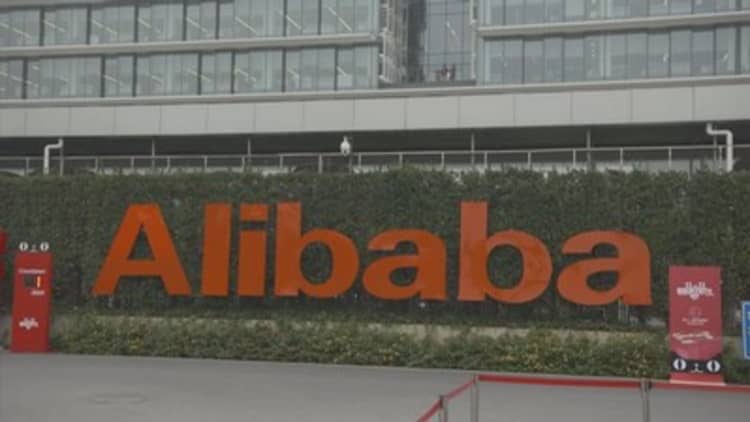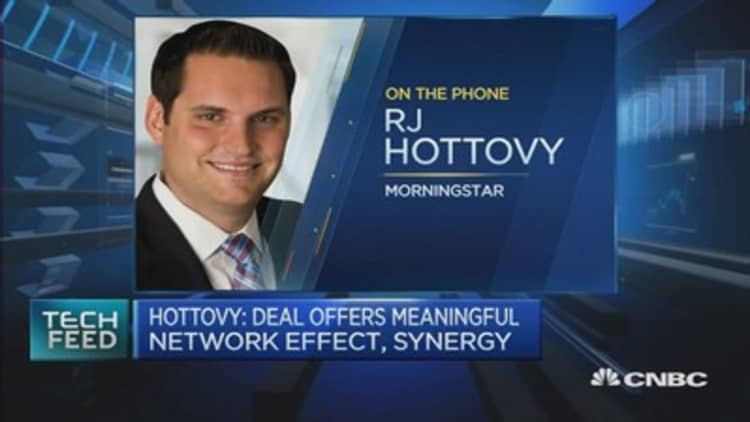


Alibaba's $4.6 billion tie-up with bricks-and-mortar electronics chain Suning Commerce Group has put the spotlight on China's burgeoning online-to-offline (O2O) retail market, with analysts predicting more big-name alliances to come.
The O2O market – where mainland internet retailers are increasingly opting to partner with offline firms to offer traditional brick-and-mortar services in a bid to give shoppers better service - has featured three high-profile deals in 2015 alone.
Earlier this year Alibaba and its affiliate, Ant Financial, plowed nearly $1 million into a joint venture called Koubei, which connects local food merchants to consumers. The move follows the internet giant's $692 million investment in Chinese department store operator Intime Retail Group last March.
More recently, fierce Alibaba rival JD.com said it would buy a 10 percent stake in Chinese supermarket operator Yonghui Superstores for 4.31 billion ($689 million).
"People talk about O2O and 'last mile' delivery which JD.com has an edge over Alibaba, but now Suning's offline presence and logistics expertise around China will help Alibaba to meaningfully challenge JD.com's leadership in this category," Henry Guo, managing director and senior research analyst at Summit Research Partners, told CNBC Tuesday.
"Alibaba is trying to duplicate what JD.com has done and that's the strategy," Guo added.
RJ Hottovy, global director of consumer equity research at Morningstar, predicted more alliances among China's internet giants and their offline counterparts in the near future.
"I don't think this is the last partnership the company will have, there will be other partnerships in the pipeline. In fact, this [partnership with Suning] will be the blueprint and might also help to [attract] international companies into Tmall, which is the key question as to how Alibaba expands beyond the borders," Hottovy said.
On Monday Alibaba said it had invested $4.63 billion in Suning. The deal - Alibaba's biggest investment yet – gives the mainland online retail giant a 19.99 percent stake, making it the second-largest shareholder in Suning.
In return, Suning – one of the country's most-established electronics retail chains, with 1,600 outlets in 289 Chinese cities – will invest up to $2.28 billion to buy newly-issued Alibaba shares, giving it 1.1 percent ownership of Alibaba.
As part of the "strategic alliance", Suning will open a store on Alibaba's Tmall.com online platform, where consumers can purchase goods. The goods will then be delivered within two hours, after the companies combine their logistics units to cover all 2,800 districts in China.
The collaboration is a "win-win situation" for both companies and will likely open a new front in Alibaba's escalating battle with JD.com, which is currently China's second-biggest e-commerce player and has its core business anchored in the sale of electronics products, HSBC analysts said on Tuesday.
Read MoreAlibaba boosts fight against fakes to lure big brands
"First, it will enhance Tmall's sales in consumer electronics and home appliances. Second, it [will] further consolidate Alibaba's market shares in B2C [business-to-consumer]," HSBC analysts wrote.
HSBC cited information from China-based market research firm iResearch that showed Tmall accounted for 61.7 percent of the B2C market last year. JD.com took the second spot with 18.7 percent, while Suning made up 3.2 percent of the market. Other players such as Amazon, Gome and Jumei trail behind with market shares ranging from 0.7 to 2.9 percent, iResearch data showed.
"The cooperation [of] the number one and number three players [will] likely put more pressure on JD.com," HSBC's Hong Kong-based analysts added.
Morningstar's Hottovy told CNBC the deal would particularly help Alibaba patch up its weakness in consumer electronics and home appliance sales.
Read MoreAlibaba in big push to take on Amazon in cloud
"The partnership with a well-respected retailer like Suning offers immediate legitimacy and adds pressure on JD.com," Hottovy said.
"The expansion is interesting because it makes the platform more robust, like North America's Amazon where you attract people into the ecosystem by expanding your selection and [boosting] your logistics capabilities. That keeps people coming back," he added.
Following the announcement, shares of Shenzhen-listed Suning soared by the daily maximum allowable of 10 percent on Tuesday, outpacing the 0.4 percent gain in the broader Shenzhen Composite.
New York-listed Alibaba which releases its quarterly results this week, rallied 2.1 percent on Monday. By contrast, shares of JD.com headed south, tumbling 6.3 percent to finish at $30.06, its lowest level since July 8.
— Arjun Kharpal contributed to this report

